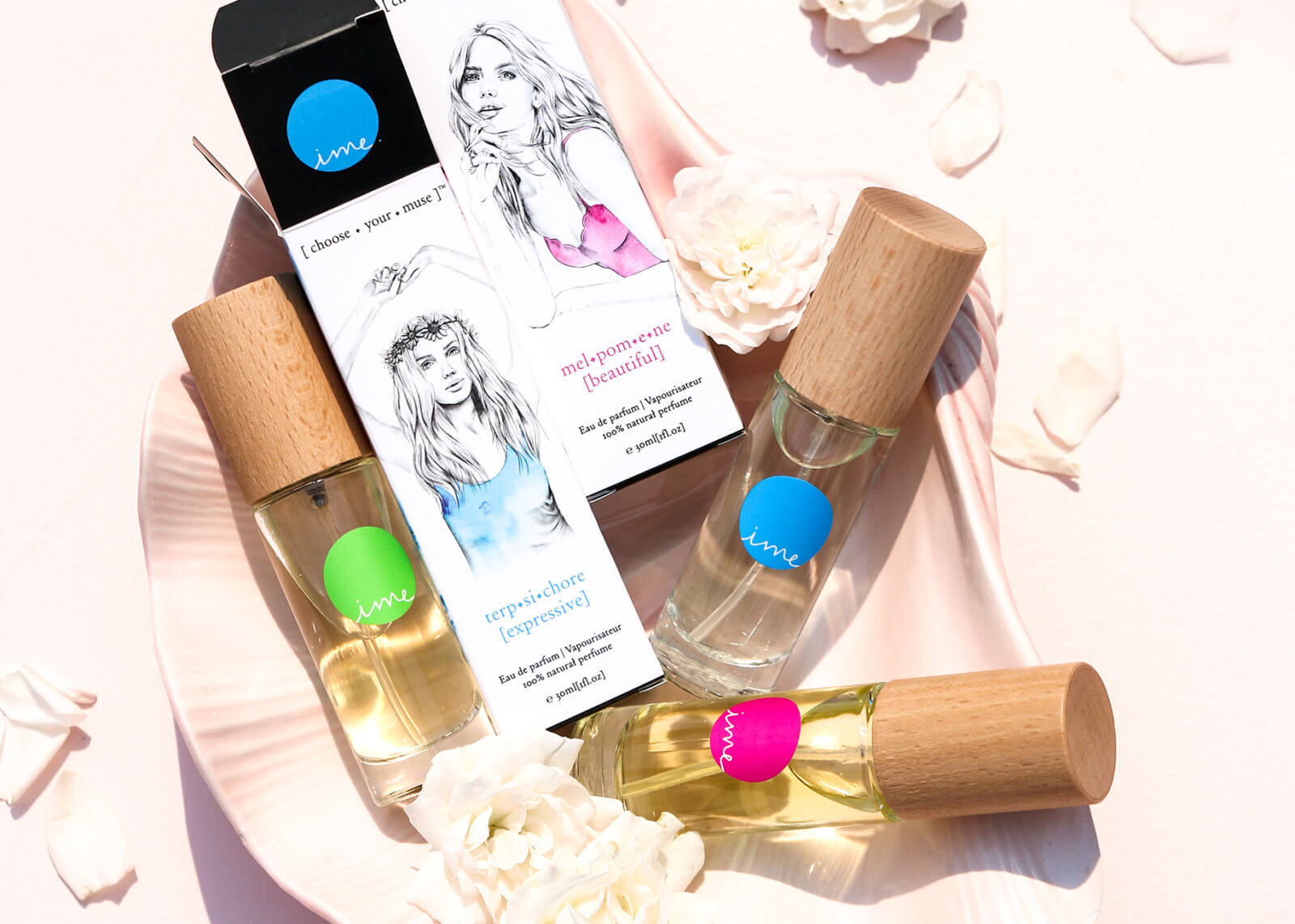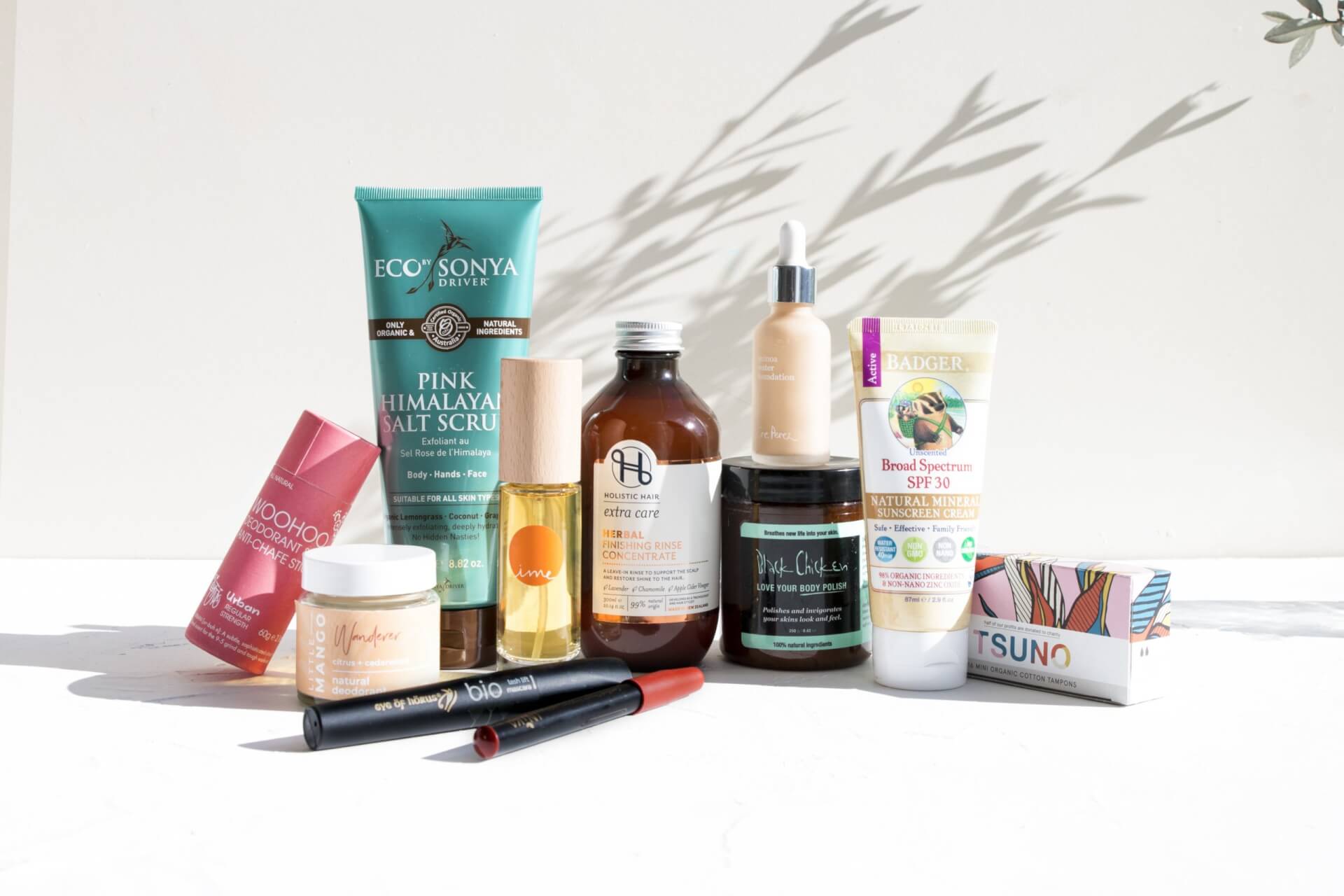Beauty
Perfume to die for… Are you spraying on toxins?
Big brand fragrances contain chemicals linked to cancer, liver & kidney damage, immune & reproductive system disruption & neurotoxins.
Legally, perfume brands can label over 3,100 fragrance ingredients as ‘parfum’ or ‘fragrance’. Most of these secret fragrance chemicals have not been assessed for safety in spray-on perfumes. But the secret is out – synthetic fragrances are anything but sweet!
When we breathe in toxic fragrance chemicals or get them on our skin, they are absorbed into the bloodstream and stored in tissues and organs. Our fat cells can hold increasing amounts of toxins for decades, leading to long term exposure. Many people develop heightened sensitivity to perfumes and suffer allergic reactions, migraines, asthma attacks, nausea, eczema, and other symptoms. There are some really scary reasons why.
Endocrine disruptors
Totally messing up your life
Our endocrine system produces the hormones that regulate oh you know… sleep, metabolism, growth, moods, sexuality and reproduction.
All the things you want to work perfectly!
Nasty Phthalates
Really, really bad for us
In 2015 The Guardian reported that “researchers have linked phthalates to asthma, attention-deficit hyperactivity disorder, breast cancer, obesity and type II diabetes, low IQ, neurodevelopmental issues, behavioural issues, autism spectrum disorders, altered reproductive development and male fertility issues.”
Synthetic musks
Those heady dizzying scents
Also linked to hormone disruption, ‘musk ketone’ is a synthetic fragrance ingredient that concentrates in human fat tissue and breast milk.
OH, AND SYNTHETIC PETROCHEMICALS
In addition to the fragrance chemicals, researchers have estimated that 80% of the chemicals in most perfumes are synthetic petrochemical compounds… mmmm nice.
In 1991 the EPA tested fragrances and found the toxic perfume ingredients acetone, benzaldehyde, benzyl acetate, benzyl alcohol, camphor, ethanol, ethyl acetate, limonene, linalool and methylene chloride. And parabens, synthetic preservatives which interfere with hormone production and release, and can possibly influence rates of cancer. Nasty.
Why Nana’s perfume makes you dizzy
Fragrances also contain chemicals which can cause headaches, dizziness, rashes, hyperpigmentation, violent coughing, vomiting, skin irritation – and maybe weight gain!
Want to smell delicious, but live healthy?
Us too! That’s why we are always on the lookout for beautiful cruelty free perfumes and 100% natural fragrances. We have collected our favourite toxin-free, cruelty free perfumes here for you. These natural perfumes use essential oils as the source of their lovely fragrances – you’ll love the scent, and your body will love you!

HEADS UP FOR THE MAMAS & PAPAS
When they say pthalates cause ‘neurodevelopmental issues’ they mean these chemicals can literally affect your baby’s development – The Washington Post reported that children whose mothers were exposed to phthalates during pregnancy had an IQ 6 points lower than expected.
Sythetic perfumes and colognes can also mean fewer swimmers. Yes, guys – your potency can be affected! The common fragrance chemical diethyl phthalate has been to linked to sperm damage in human epidemiological studies.
Fragrance chemicals permeate our lives
The fragrance industry launches around 800 new fragrances every year, but perfume isn’t the only place we are exposed to synthetic fragrance chemicals. Shampoos, lotions, bath products, cleaning sprays, air fresheners and laundry and dishwashing detergents also contain strongly scented, volatile ingredients hidden behind the ingredient ‘fragrance’.
Nazaroff (2004) showed that some ingredients even react with ozone in our homes to create potentially harmful secondary air pollutants such as formaldehyde and ultrafine particles.
Be warned – even ‘unscented’ products contain synthetic masking fragrances; only ‘fragrance-free’ means that a product has no fragrance.
And, it’s not just the fragrance chemicals that stink! In addition to the scent chemicals, perfumes also contain synthetic solvents, stabilizers, UV absorbers, preservatives and dyes.



Hello unsure where you researched this info, but its incorrect? Both theses ingredients you say that are toxic are natural limonene, linalool they are allergens found naturally in essential oils? You then go onto promote using essential oils?
Thanks for your question! Some components of some natural essential oils are unsuitable for some people – but essential oils are still a safer fragrance alternative to synthetic fragrances, and most people will not experience any reaction.
Linalool is a natural constituent of many essential oils, the most commonly used of which is lavender, and can be indicated in skin irritation and eczema – so for example if you have skin that reacts to linalool you can avoid the essential oils that have higher levels of linalool ie: howood 80-90%, rosewood 60-90%, coriander 60-80%, linaloe 30-70%, sweet basil linalool type 30-50%, Mentha citrata 20-50%, lavender 20-50%, lavandin 30-40%, petitgrain 20-30%, bergamot 10-30%, clary sage 10-25%, ylang ylang 10-15%, geranium 8-15%.
Limonene is generally found in lemon essential oil and enhances the penetration of other ingredients – a good thing if you are using a natural facial serum and want the actives to penetrate your skin, but it can also sensitise the skin.
If you have reactive skin, essential oils like roman chamomile and rose are likely to be very helpful.